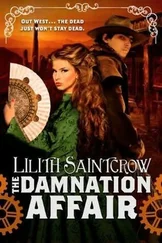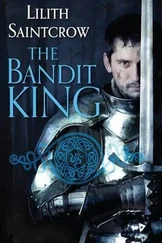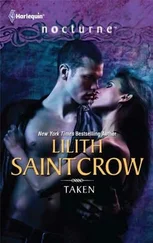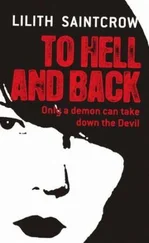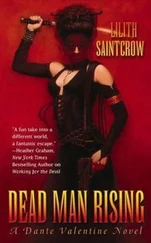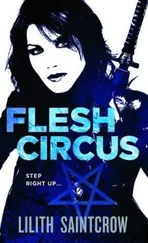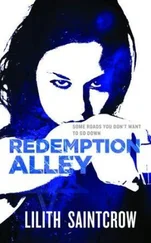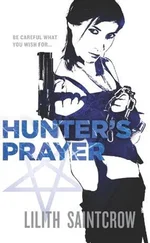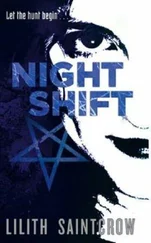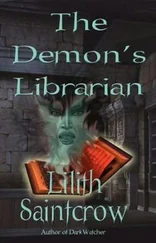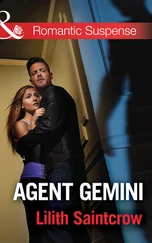“I did.” But it was close, Hutch. So close. You don’t even want to know. “But I can’t be everywhere.”
He gulped. If it was possible to go any paler, he probably would have. “Yeah. I, um, I got that. You okay? You look pretty pissed off. More than usual.”
As well as covered in blood and blow-dried. I dredged up what could be called a smile. “Why, Hutch. I didn’t know you cared .”
He gave me the most evil look a weedy hacker boy I outweighed could possibly give. And to top it all off, my pager buzzed in its padded pocket.
When I dug it out and glanced at the number, I had to suppress the urge to roll my eyes. Never rains but it pours. “Can I use your phone?”
As if he was going to say no.
He backed up a couple more steps, as if I’d moved. “Go for it. As long as something doesn’t crawl out of it when you’re done. I’m gonna get to work.”
“Nothing will crawl out of your phone, Hutch. Promise.” I gave him a wide sunny smile, or as close to one as I could get. I even tried to make it unscary.
“That’s what you say.” He reached up, grabbed a box of energy bars from atop the sparkling-white fridge, and retreated with his coffee. I heard him stamp down the stairs, cursing, and picked up the phone.
It rang twice. I stared at the back of my left hand, the scrape across the knuckles healed up and looking weeks old instead of fresh. My fingers drummed on the countertop, bitten nails scratching the cheerful yellow tile. The Talisman was a warm weight against my chest, and a shiver went through me.
I can only hold the tide so long. Perry, standing in the warehouse and snarling at me. That case had almost ended up unleashing utter destruction on my city. The last time this Argoth came through into our world was in 1918, in Europe. The second Jack Karma—the one whose knife my apprentice had taken such a shine to—claimed the dubious honor of sending him back into Hell in Dresden, February 1945.
In the in-between time, Argoth had been a very busy boy. Some parts of the world were still reeling, between that and the great demonic outbreak in ’29.
The phone picked up. “Sullivan,” he barked.
“It’s me. You rang?”
“Yeah. Me and the Badger, we got some live ones. Well, dead ones. But it looks like one of yours.”
Jesus. “Where?”
“Cruzada. 153rd and Anita.”
Out in the suburbs. “All right. I’m on my way. Hold the scene.”
Like he needed me to tell him that. But he just made an affirmative noise and hung up.
There was little I could do until Hutch finished digging. The night was getting older by the second, and it already seemed too long. I drummed my fingertips for another few seconds, as if it would give me something useful.
Then I got going.
T he Cruzada district is a collection of suburban streets, most of the houses from the seventies and all of them needing to be taken on a street-by-street basis. Some are pretty nice, neat and clean, with hardworking neighbors who look out for each other. Some have crackhouses and shootings. The higher up and farther away from the river, the more likely there are to be bars on the windows and busted-down cars on the lawns.
Anita and 153rd was a buffer zone. Yellow grass slowly dying, bars on the windows that weren’t for decoration, but plenty of the houses still had neat fences and all-weather children’s toys scattered around. The air was heavy with the promise of spring, though the storms weren’t threatening over the river yet and the desert cold had its winter bite. A scrim of snow still clung to the mountains and frost-rimed anywhere the sun didn’t reach during the day.
It was three a.m. and dark even through the stain of orange citylight. The drunks would be making their way home, traffic fatalities occurring, the really bad domestic disturbances getting underway. In another couple hours the world would hold its breath for the long, dark shoal before dawn, the time when old people slip under the surface and drift away. But for right now, things would be hopping, one last frenzied burst of activity to take us through the night.
It wasn’t hard to find the place. Two black-and-whites, their lights dappling blue and red, and a coroner’s van lodged like splinters in the street in front of a trim fake-adobe. The adobe’s door was open, a warm yellow block of electric light spilling out. Sullivan, his sparse, coppery hair catching fire under the reflected light, stood there talking to one of the blues. It was Jughead Vanner, the big blond unlucky one. He ran across weird nightside cases with distressing regularity. It was getting to be a joke with the crew of regular exorcists attached to the police department.
Some people are like that—unlucky. At least he knew who to call when things got weird. And he knew what kind of scene not to go barging into. He hadn’t expressed any interest in the cases themselves yet, which was a good sign.
If he had, he probably would have ended up as an exorcist himself. Nobody can be unlucky and curious, and walk away untouched.
The gate in the chain-link fence was open, I pushed it further and it squawked. Sullivan and Vanner both glanced at me. The other black-and-whites were near the coroner’s van; bullshitting since there was nothing for them to do, but they couldn’t leave the scene until I cleared them.
“Hey, Kismet,” Sullivan called. “Glad you could make it.”
He looks like an overexposed photograph of a rumpled, thin man, despite the ruddy tinge to his hair. That washed-out exterior hides a mind so sharp it threatens to cut itself on a daily basis. Word was he’d almost ended up an accountant instead of a cop, and the finicky precision of his reasoning made me believe it. Of all the odd couples in Homicide, Sullivan and the Badger are probably the physically oddest.
He’s lanky and almost transparent. She’s round and solid-motherly, with a white streak in her iron-gray hair. She doesn’t get her nickname from that, though. She gets it from being tenacious as hell. If she and Sullivan ever tangled, she would be the one holding him down and rubbing his face in the gravel.
At least, that’s what the betting pool says. Odds are on the Badger any day of the week, and especially once a month.
She was in the hallway, arms crossed, her broad face solemn.
I took in the neatly clipped yellowing grass, touched with frost. People in the Cruzada have better things to spend their money on than astronomical water bills, especially in winter. No bikes or kid’s toys, thank God. “I hurried right on over to get a hot date with you, Sullivan. What do we have?”
Vanner, as usual, flushed a bright scarlet and dropped his baby blues to my boots. He was the size of a small mountain, the beefy type that runs to fat early without hard exercise. “Neighbor called from the pay phone two blocks away at the Circle Mart. Said they heard screaming. Dispatch sent us out with backup. We got here, everything quiet. Except the front door was unlocked. We identified ourselves, went in, and…”
The Badger stepped out, warm yellow electric light painting the stripe down the side of her head. “Hullo, Jill.” A soft, unassuming voice that had fooled a lot of perps into thinking she’d be easy to bowl over. “Pretty sure this is one of yours.”
I nodded. My earrings swung, and silver shifted, chiming. Vanner flinched a little at the sound, covered it well. “How many?”
“Maybe four. It’s… well.” Her mouth turned tight, pulled against itself. “Come on in, take a look.”
I stepped up onto the porch, sliding past Sullivan, who didn’t move. Jughead pressed back against the wall like I had some sort of disease.
Читать дальше

